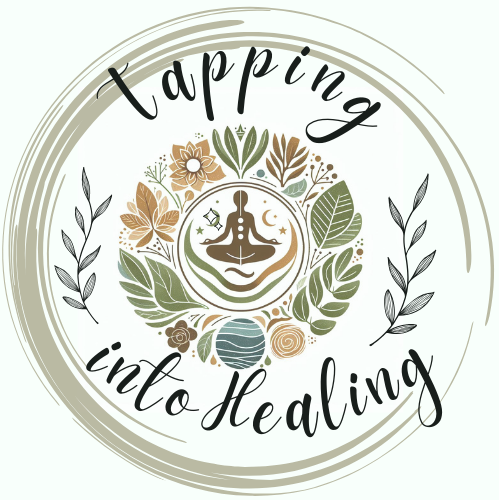How are you coping with stress and negativity in your life? Are you numbing out with food or drink, are you sitting in front of Netflix for hours, scrolling on social media, or zoning out with video games? You might want to consider a gratitude practice. You may be wondering why, but there is research to support the benefits of a daily gratitude practice in supporting mental, emotional, and physical health. Plus, having a moment of gratitude is a great way to change your perspective in the moment.
Is it possible to see the gift in the moment when everything seems hopeless? How do you shift to a place of gratitude and is there really a benefit to seeing life through the lens of “glass half full?” Part of the reason for a daily practice is to help you create a new habit, so it will be easy to shift into gratitude when it feels like nothing is going right.
Keep reading and we’ll explore what gratitude is, the benefits of a daily gratitude practice, and look at some ways to express gratitude.
What Is Gratitude
One definition of gratitude is: the quality of being thankful; readiness to show appreciation for and to return kindness. Gratitude is both an emotion and a trait. It involves the recognition of something positive, and expressing thanks or appreciation for the gift or act of kindness we have experienced.
Dr. Robert Emmons is known for his research on gratitude. He has authored multiple papers on the psychology of gratitude and how it can lead to increased levels of well-being. He has stated that the feeling of gratitude involves 2 stages.
(Emmons & McCullough, 2003)
The first stage is identifying and acknowledging something that is good in our life. We affirm that life has good elements and that it is worth living. In this stage we take a moment to appreciate and acknowledge.
Stage two is the acknowledgment of the source of these good things in our life. Namely, that some of them come from outside of us, our friends and family, our Creator, or our pets for example. We recognize the goodness in our life at this stage and know who to thank for it.
Does it change us to view the world from a place of gratitude. Could it actually be helpful to see the different situations in our life from the point of view of “What is right with this situation rather than what is the problem here?”

Benefits Of Daily Gratitude
1. Happier and More Positive Emotions
When we are in a state of gratitude we are in the present moment, appreciating what is. This practice of being in the present moment allows us to let go of worry and stress. From a place of gratitude in the now, we can remind our self that in this moment life is good and I am safe.
Gratitude can disconnect us from out toxic negative thoughts. Practicing gratitude in the moment can shift our focus and give us an opportunity to look for a reframe, or move onto something more positive.
Research supports the idea that gratitude is strongly related to positive emotions, like life satisfaction, hopefulness, and feeling more in control in our life. If that isn’t enough, according to the research of Emmons and McCullough; ” Expressing your thanks simply feels good for both the recipient and the “giver” as it increases the production of the “feel good” neurotransmitter dopamine. So you get a little boost when you experience gratitude.
A Positive Psychology study with Martin Seligman found that people suffering from depression reported a 35% reduction in their symptoms after starting a gratitude practice. Additional studies show that gratitude can ease anxiety symptoms and is linked to overall good mood.
Practicing gratitude consistently improves positive feelings and can contribute to a sense of well-being.
2. Healthier relationships
Looking at the world through the lens of gratitude allows us to not only appreciate the situation but to acknowledge and appreciate the reason for the situation. As Emmons found, we can appreciate the source of our gift. In doing so, it gives us an opportunity to thank the people in our life that add to our reasons to be grateful.
By acknowledging our appreciation, verbally and through our actions, we strengthen the bonds of our relationships. People may say that they don’t need a thank you, or that anyone would have done what they did. But, for most of us it feels good to be appreciated.
Appreciation goes a long way in romantic relationships. It can help partners feel seen for their role in the relationship as well as adding to increased satisfaction in the relationship.
We can create healthier bonds with our social support system, and beyond. Share some happiness by acknowledging someone for being helpful or kind. Send out positive intentions to the postal person, the grocery store clerk, the farmers who are responsible for the food on your table, for example.
Researchers from the University of Manchester found that when we have gratitude it influences our perception of social support and we feel more connected and part of the whole.
3. PERSONAL GROWTH
Consciously and consistently sitting and writing out and reflecting on what we feel grateful for, can be a springboard into thinking about what else is important to us. Keeping a gratitude journal might be a great way to identify values and set goals for our self.
When we look at the benefits of a gratitude practice it makes sense that it is an excellent way of helping us grow personally. We start to notice the small things, identify what is important to us. Ideally we start to reciprocate and be on the giving end of helping others have positive interactions and receive gifts in their life. It creates a foundation for self-growth and personal development.
If we are happier, have satisfaction in our relationships, feel more of a connection to others that we are more likely to take risks and achieve goals we set for our self.
We can be grateful for what we have and still strive for more, gratitude doesn’t mean settling for what you have. If you value success, set goals for success and be grateful that you have the motivation, opportunity, support, etc… to get what you desire.
4. Lower Stress – Better Health
In one study by Dr Emmons and his team focused on the mind-body connection, they found that individuals that practiced gratefulness tended to be more aware of the effect of their lifestyle choices on their health. Having gratitude for healthy food and engaging in exercise because it felt good kept people more motivated to stay the course. These choices have a huge impact on physical and emotional well-being.
Stress impacts our health adversely, lowers our immune systems ability to fight off physical threats. It also can create anxiety and worry. Since a gratitude practice has been shown to increase overall well-being, it follows that it would lower our stress response.
Another study found that feelings of gratitude caused higher activity in the hypothalamus. This is the part of the brain that regulates sleep patterns, metabolism, and stress levels. Research also showed improvement in sleep and lowered risks associated with heart failure when practicing gratitude.
We are wired to look for the negative, this is to keep us alive and safe and free from emotional hurt. We are more likely to remember the negative experiences because of the adrenaline and cortisol rush we get when bad things happen, it engraves it into our memories. However, a gratitude practice may be helpful in rewiring our brains to start to look for and remember the good. This can create more resilience and help us lower our stress level and cope with life in a healthier way.
Practicing Gratitude
What would you be willing to commit to as a daily gratitude practice. It doesn’t have to be the same daily practice although that may be the way you choose to start.
Here are just a few ideas to get you started:
- Journal – there are many ways to keep a gratitude journal. You can list things daily that you are grateful for, or you can write out several things each day that went well. Write a letter in your journal to someone you are thankful for, or write an entry about the gifts you received having a certain person, pet, job, home, etc… in your life.
- Set an intention to be on the lookout for things to be grateful for each day. Make it a point to stop and express a moment of gratitude at least 10 times each day.
- Meditate on gratitude.
- Start your morning or end your day counting your blessings, either in prayer or just taking some time to appreciate what and who you have in your life.
- Literally stop and smell the roses, feel the sun on your skin, savour your food. Acknowledge this moment.
- Leave post-its or visual reminders around your home to remind you to be grateful.
- Make it a habit to say Thank you and appreciate others.
- Recall a situation that felt negative, if you reflect on it can you see something good that came out of that situation, write about it.
Benefits of A Daily Gratitude Practice Conclusion
As you can see there are many benefits of incorporating a daily gratitude practice into your life. There are workbooks, journals, apps, that can all help you stay focused and make practicing gratitude a habit. Or you can go old school and put post-its or other visual reminders around your living space.
It certainly wouldn’t cause you any harm to give it a try, it is free, and doesn’t take a lot of time.
A daily practice helps it become more of a habit. Get creative and decide which method would work best for you to start a daily gratitude practice.
If you want some help to get started you can join my 5 Day Gratitude Challenge by clicking here.
- “Let us be grateful to the people who make us happy; they are the charming gardeners who make our souls blossom.” — Marcel Proust
